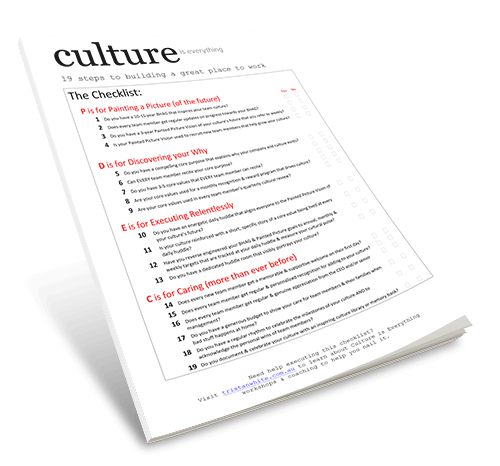
What is the most essential thing in retaining your high-performing employees?
ANSWER: Setting and communicating clear expectations.
As a culture-focused business owner, I've spent years trying to figure out what the most important things are that need to be done to create a strong team that is high-performing and loyal.
In the earlier years, I spent most of my time asking my employees what they wanted from me and then trying to meet EVERY request, suggestion, and even passing thought-idea that came my way.
That approach was expensive and exhausting, and it worked as a retention tool less than half the time.
Even when I provided what employees asked for, they often still left!
After more than 21 years leading my business and working with many members of the Culture Collective, I now understand that setting clear expectations and sticking to them are the most important things a business owner can do to engage and retain their team.
An example of how a business owner can think they're doing what's best for their team, while doing the opposite, became apparent at a Personal Culture workshop I was leading.
During the workshop, I asked a leadership team member 'What action do you take when an employee ISN'T meeting their job expectations?
The answer was, 'I ask what we and our business can do to support them in doing what needs to be done. '
That answer is back to front!
If the job expectations are clear, the burden to achieve should not be on the business owner; that's when the employee needs to take ownership of their job.
Instead of asking the employee 'What can the business do for you?' I firmly encouraged the employee to be asked 'How will you adjust to meet the expectations of your job?
See the difference?
If you carry the burden of everyone else's effort and success in their jobs within your business, you are not doing what is best for your business (or those employees).
My suggestions are:
- Get very clear on a small set of expectations for each job;
- Make sure those expectations are clear and understood for each employee;
- Train your employees to do their job well (I recommend the I/We/You approach to training);
- Check that they are meeting the expectations often
- Praise if the expectations are consistently being met or exceeded
- Notice when expectations are not being met or exceeded;
- Take action quickly when performance isn't adequate to ensure the employee owns the responsibility and expectations of the job you are paying them for;
- If change isn't made, with respect, find someone who will perform at the level you need.
In a strong culture of high-performing and loyal team members, the best employees achieve their job expectations and demand the same from others.
For a stronger culture in your business, consistently and respectfully, hold your people to account on the job they are employed to do.
Keep at it.
______
PS - In 2025, I am working with small business owners to simplify and strengthen their business culture. HERE's how I could help you.



